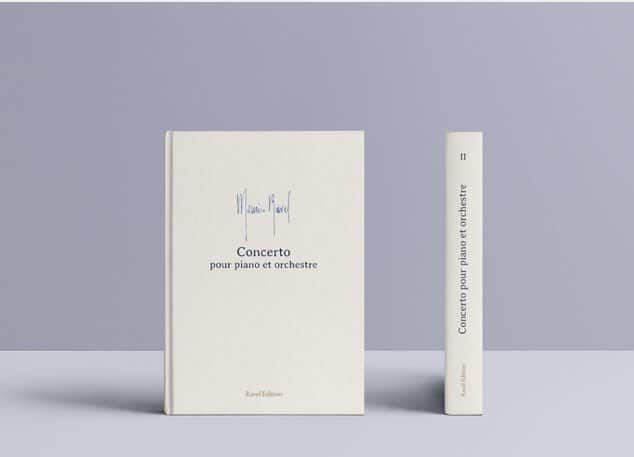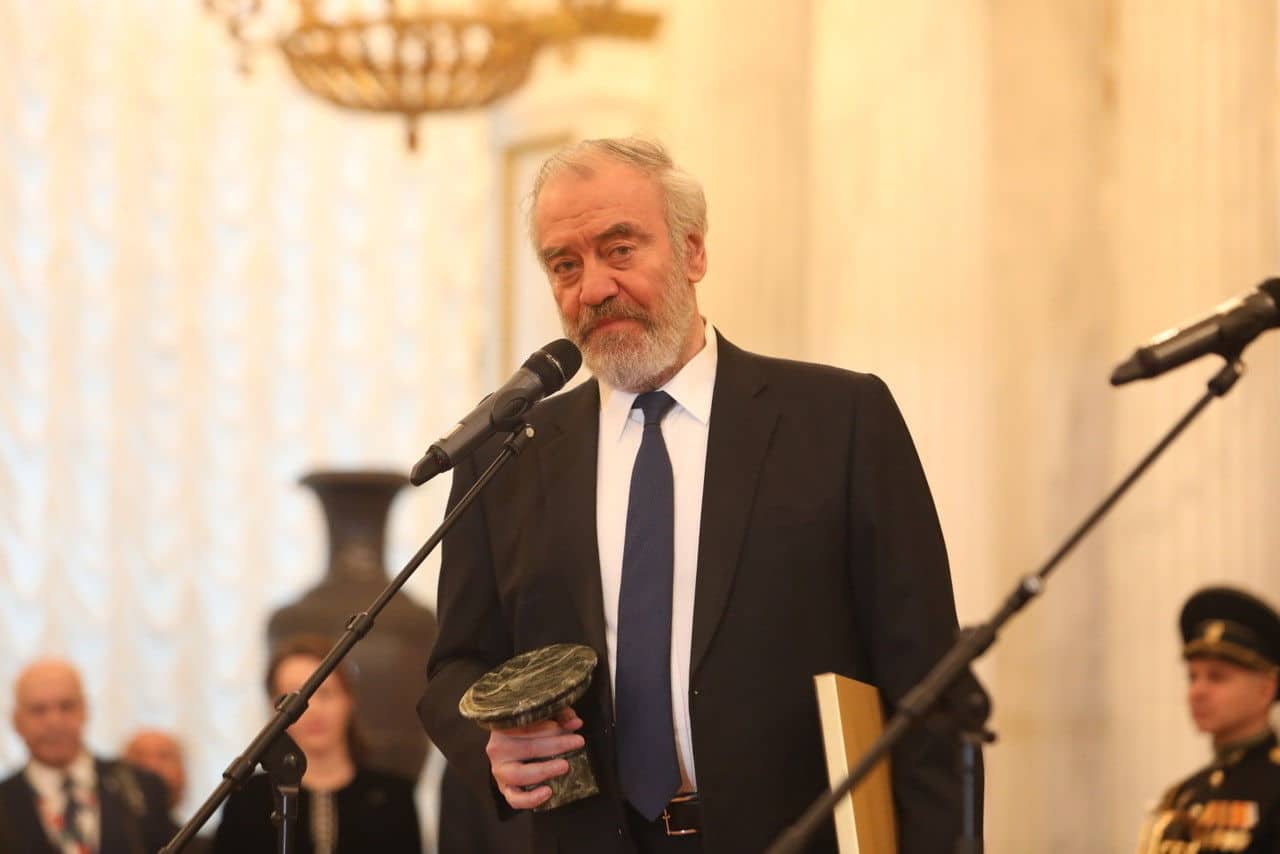Ravel has stolen my weekend
mainThe ultra-authentic new score of the G major piano concerto has just arrived from the Ravel Edition.

There are literally hundreds of corrections. Louis Langrée thinks it takes us ‘closer than ever before to really fulfilling its creator’s true intentions’. And it’s an object of such dazzling beauty.
Switch off the phones. I’m busy.





Arturo Benedetti Michelangeli.
Ettore Gracis.
Philharmonia Orchestra.
Other performances of this superb work are rendered superfluous by this recording, whatever edition is being used.
I am hardly one to gainsay praise of ABM but in this case it is an overstatement to suggest that he exclusively occupies the field. Among others well worth mentioning are De Larrocha with Slatkin and the St Louis.
Really? Why should perception of a significant piece of music be reduced to a ‘single’ performance?
You’re absolutely right, JB. I overstated my case.
Even though I still think the ABM-Gracis recording is the finest, there are a number of other wonderful ones out there, including this Marguerite Long one, which is not only properly atmospheric, but historically important. There was an excellent transfer of it on EMI at one time, which is the one I possess.
Others are the recordings of Hélène Grimaud, Anne Queffélec, and Marta Argerich. And I seem to be in the minority opinion when I say that Samson François’ recording is marvelous as well.
But I stand by my comment on editions. If the performance is excellent, the edition used is of secondary importance (see my earlier comments re: Carmen and Boris Godunov).
So there must be only one valid performance of beethoven’s 9th. Why bother even playing these works when a “definitive” record exists……
Michelangeli is too “maniéré” in this concerto in my opinion. I like Samson François who plays as much with his fingers as with his jazzy and “artiste” personnality. Are all other records superfluous in past, present and future? No.
Indeed the François recording is superb:
https://www.youtube.com/watch?v=YXcdoLVkVL4
I’m always slightly sceptical of something purporting to be “authentic”, as we’ve only ever got a best guess if the composer’s already dead. Beyond correcting obvious typos, I’m intrigued as to what this edition brings, and I look forward to you telling us.
Wonderful recording, by the way. Long and Ravel are so spirited and unsentimental in comparison to the schmalzy way this often gets played.
How absolutely wonderful! I am ordering a copy as soon as I finish typing this, and I’ll set aside the first weekend too, when it arrives!
Piece of genius, in spite of the ‘frivolous’ intention. Both Ravel’s concertos are so different from other 20C attempts (Rachmaninoff, Bartok, Stravinsky, Prokofiev) and curiously, have attrackted much less academic attention than the competition. They are so well-made and beautiful, there is not much to say about them.
This is the historic recording with Long (the dedicatee) and supposedly conducted by Ravel, as such indicated on the record and in the marketing, but which is not true: in the eighties it transpired that it was conducted by Pedro de Freitas Branco, with Ravel being present at rehearsels and recording, advising. Interesting: the beautiful tempi and the free rendering of the short ad libitum solo cadenza at nr 17 of the score which is, nowadays, often played much too slow and much too ‘clear’, destroying the effect.
Concerning corrections: Durand was notorious for their reluctance to invest in notational perfection. For instance, the first page of Ondine (from the Gaspard de la Nuit cycle for piano) had a wrong structure in the left-hand quivering figure, which Ravel tried in vain to have corrected but which Durand refused. Many pianists have struggled on that first page, unnecessarily.
It seems that, after having lost so much money on Debussy with a fortune on advances, Durand became prudent with composers’ demands.
Thank you, John, for your post. It is timely, for I have recently enjoyed a wonderful performance of this concerto by Akimi Fukuhara in Tokyo.
Generally speaking, it seems Ravel’s music has not received much academic attention – with regards to any of the aspects of his music: form, development, harmony, rhythm, let alone, his magnificent orchestration. But then, perhaps we could say the same about Tchaikovsky. Had Ravel & Gershwin lived another 10 years, serial music might not have overtaken composition studies in American universities.
The reason of the relative academic indifference is that Ravel did not quite fit into the progressive story line where so much could be explained and analysed, like Schoenberg, Stravinsky, Bartok with his absorbtion of folk material. And after WW II Ravel, in spite of having almost exclusively written master pieces, was generally considered a remnant of a past and no longer valid tradition, so: OK but not asking for serious consideration because the game he played was already known. Which shows the limitations of academia.
A similar case can be made about earlier master pieces like Brahms’ 2nd piano concerto and violin concerto: glories of tradition but not really offering much work for academics – as they think. And yet, these works are full of interesting details and subtle complexities, like Ravel’s.
Thank you, John.
… except when the composers were willing to pay for the edits/reprints themselves, which several of the more well-heeled ones did.
Interesting. What sort of corrections are they – phrase markings perhaps ?
Norman – this post is timely in only that I traveled to Boston yesterday to hear the Friday matinee performance of a program of a co-commission by Betsy Jolas, the G major concerto performed by the incomparable Mitsuko Uchida, and the 12th Symphony by Shostakovich. IT was quite a memorable show as Ms. Jolas attended and received a standing ovation from the audience. The ravel sounded ravishing under Uchida’s playing who also received a standing O with 4 curtain calls.
I should also note in Nelsons leading the BSO in the Shostakovich that on two occasions he dropped his baton and those in the violin section (2nd and 4th chairs) had to pick it up and hand it to him. Im sure this happens from time to time, but never had I seen it occur twice – live! I think it would be fun to capture other instances of dropped batons in performance if others have memories.
Re: dropping batons, Solti was a frequent baton-dropper, IIRC; but more widely known is the occasion on which he stabbed his left hand with the baton. Of course, that still doesn’t compare to Lully stabbing himself in the foot with his conducting staff and dying from the resulting gangrene infection…
Literally? The word drives me mad.
On a tangent: Around 1979, I came to the conclusion that Ravel was the first composer to conclude a piece with 4 different notes. The piece in which he first did this: 1893 – “Ballade de la reine morte d’aimer”. Even more astounding, and sly, he uses the “Tristan chord” which jazzers call a 1/2 diminished or a min7(b5).
No one has been able to refute my claim –
Liszt’s Bagatelle sans tonalité (1885) ends with F-B-D-F in the left hand and G#-B-D-G# in the right hand.
Liszt’s late piano works are very interesting and daring, some of them are wonderful dreamscapes. When Wagner, in his postparsifallian years, stayed in Venice, Liszt was a guest, occupying his own room a floor higher with a piano. At the time he was experimenting with his floating tonalities, the sound of which flowed downstairs, prompting Wagner to get irritated and telling his wife that Liszt was obviously loosing his mind.
If this volume is anything like the one about Bolero that was published by this same group several years ago, it will be well-worth the substantial purchase price.
Franco-Turkish pianist Huseyin Sermet made an excellent modern record of Ravel’s G-major concerto for a Naive label with a French orchestra. I also like Michelangeli’s. live and studio.
I saw Samson Francois in recital in San Francisco. He claimed to be the only pupil Marguerite Long ever slapped,perhaps for playing “her” concerto.
I’d love to hear more about that Francois recital in SF, Edgar. He’s one of my fave pianists. What was on the program?
Huseyin Sermet is a wonderful musician – I must acquaint myself with his recording of the Ravel.
BTW, about that live Michelangeli: I’m not sure which one you’re referring to, or even if there’s more than one extant, but I have one with Celibidache and the London Symphony on the “Exclusive” label. It is a superb performance, and the sound quality is very good, too.
Cheers!
Greg, glad you know Huseyin Sermet. I like his Liszt sonata as well as anyone’s since Horowitz II; stunning pedal effect in the coda before the quiet ending.
oreally sorry to let you down, but nearly all memory of Samson Frncois’s recital has left me. His usual progrms were French, Chopin and Schumann, so that’s probably what I heard, and I have records ofthose byhim. Philippe Entremont also studied with Long, and I heard him also twice around that time.
When Francois first appeared in the US after WWII,his photo was in magazines with a longforelock that hung down and curled around his chin. He entered from stage right, bobbing his head and half bowing all the way to the piano. I wish I remembered more, but I was pretty green.
Michelangeli’s Ravel on EMI and live withelibidache are the ones I know and admire.
Greg, I want to explain why I have little memory of amson Francois’s recital, which I think was inVeterans Auditorium, San Francisco,probably on Spencer Barefoot’s celebrity concert seriesin the late 1950s or early1960s.
By that time I had heard Kempff, Cortot, Backhaus, Gieseking, Elly Ney, Friedrich Wuehrer, Benno Moiseiwitsch, Rubinstein, Iturbi, Abbey Simon, Dalies Frantz, Lili Kraus, Marc Ginzburg, Menuhin, Heifetz, Casadesus, Erica Morini, Mischa Elman, Leonard Stein, Arrau, Sari Biro, Istvan Nadas, John Browning, Fou T’song, Philippe Entremont, Anatole Kitain, Vladimir Brenner, Badura-Skoda, Joerg Demus, Myra Hess, Egon Petri, Van Cliburn, Eichter, Glenn Gould, Bernhard Abramowitsch, Stanislas Niedzielski, Brailowsky, Friedrich Schery, Ozan Marsh, Corbett-Jones and others
Sometimes I remembered entire programs and details of performance. Sometimes not. My collection of printed programs was lost in a move.